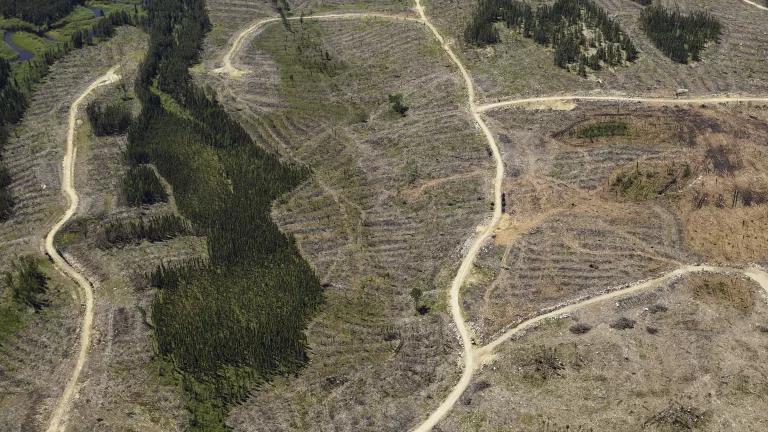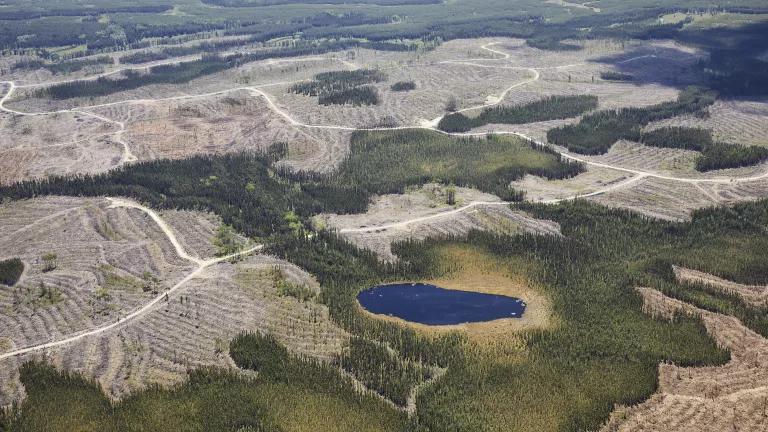U.S. Universities to Canada: Protect the Boreal Forest
In a letter sent Friday, sixteen student environmental groups, student governments, and sustainability coordinators from colleges and universities across the U.S. urged Canadian federal and provincial government officials to safeguard the globally-important Canadian boreal forest.

In a letter sent Friday, sixteen student environmental groups, student governments, and sustainability coordinators from colleges and universities across the U.S. urged Canadian federal and provincial government officials to safeguard the globally-important Canadian boreal forest. Signatories from schools including Harvard University, University of California Berkeley, University of Minnesota, and Vanderbilt University called on Canadian governments to “act swiftly” and in partnership with Indigenous Peoples to enact meaningful protections to Canada’s boreal.
The university groups highlighted the importance of the boreal forest as a carbon storehouse and thus, the need to protect it in order to mitigate climate change. The letter notes that Canada’s boreal holds over twelve percent of the world’s terrestrial carbon, which equates to 36 years of global fossil fuel carbon dioxide emissions. However, logging causes the release of this carbon dioxide into the atmosphere, which exacerbates climate change. The letter also called for boreal caribou habitat recovery plans, as logging continues to degrade the critically threatened habitat of this species. As the letter stated, the country’s caribou population could decline by 30% in the next 15 years under current conditions. Additionally, logging threatens some Indigenous Peoples’ last remaining intact territories.
As members of the academic community, the signatories wrote, “we strive to use our voices in addressing today’s needs without compromising the needs of future generations.” Johan Arango-Quiroga, a Harvard University student, decided to sign the letter with the Harvard Extension Environment Club because he believes that “we cannot let governments and private interests keep ignoring our desire to protect the environment.” He added, “My hope is that we will find a way to act in harmony with the environment, while making the right decisions for this and future generations.”
The letter builds off a recent “renaissance” of student activism in the United States. Student-led environmental movements have notably picked up steam, including campaigns to divest from fossil-fuels, fight climate change, and sustainably source cafeteria food. Protecting Canada’s boreal forest is an issue that young people in particular care about because it is their generation that will bear the brunt of climate change. One study found that without action, climate change will cost Millennials, as a whole, almost $8.8 trillion in lifetime income.
Protecting the boreal forest is also a social justice issue, as the letter highlights. It has been well documented that the effects of climate change and resource exploitation will be felt most strongly by minority populations. Indigenous Peoples often have strong relationships with the land on which they live, making them much more vulnerable to climate change and land degradation. In the Broadback Valley of Northern Quebec, for example, the Waswanipi Cree have been fighting for the last fifteen years against road building and logging in their boreal forest homeland, where they still hunt and trap. To promote sustainable forest management, Indigenous Peoples have led the way in proposing alternative models that would both protect local landscapes and species, and support economic opportunities. Addressing these issues, the letter suggests, will require Indigenous-led, socially and environmentally just management of the boreal forest.
It is not only university groups who have a stake in this issue. The U.S. marketplace is also taking note of the ongoing degradation of Canada’s boreal. Last week, seventeen U.S. companies, with a combined annual revenue of over $35 billion, sent a letter to Canadian governments to similarly express their concerns about the sustainability of forest product supply chains that rely on the boreal forest under current regulatory conditions.
The message from the U.S. academic community, echoed by companies across many sectors of the U.S. marketplace, is clear: logging in the boreal forest is a dangerous gamble, compromising climate change mitigation, the habitat of boreal caribou, and Indigenous Peoples’ ways of life. Let’s hope Canada’s federal and provincial government officials hear the message loud and clear; the world won’t sit back and observe idly as one of the world’s last intact forests is destroyed. Canada, the world is watching.



